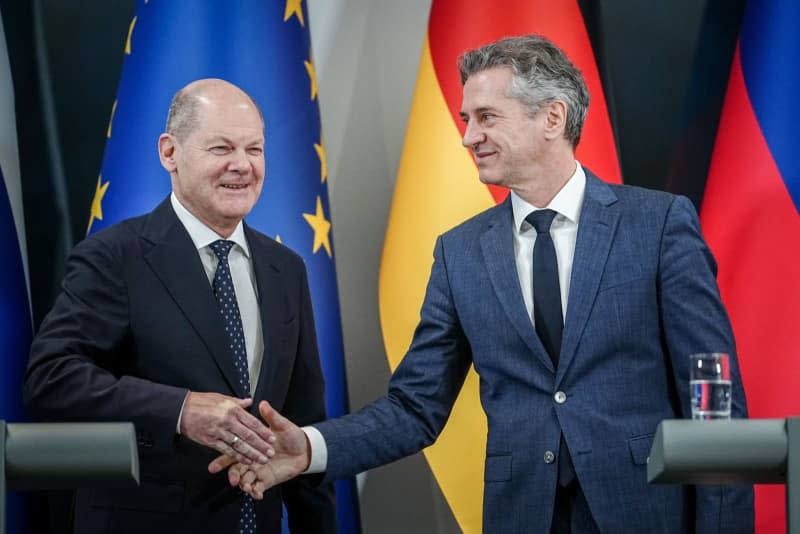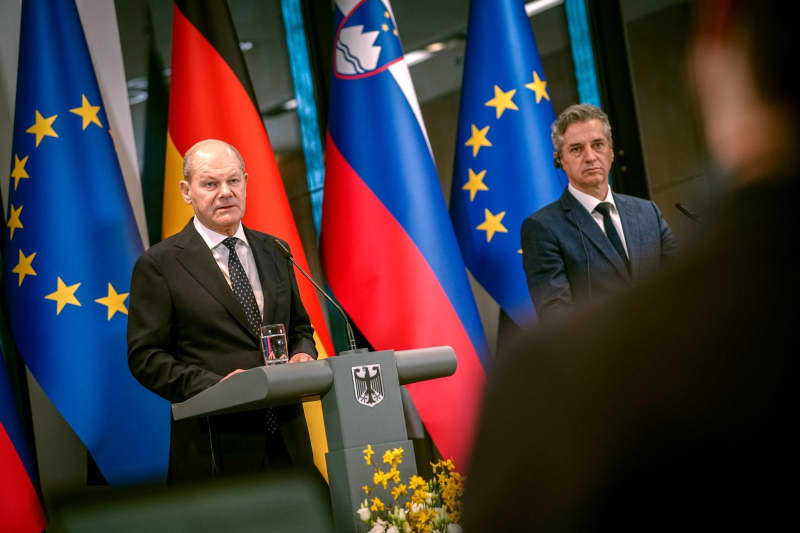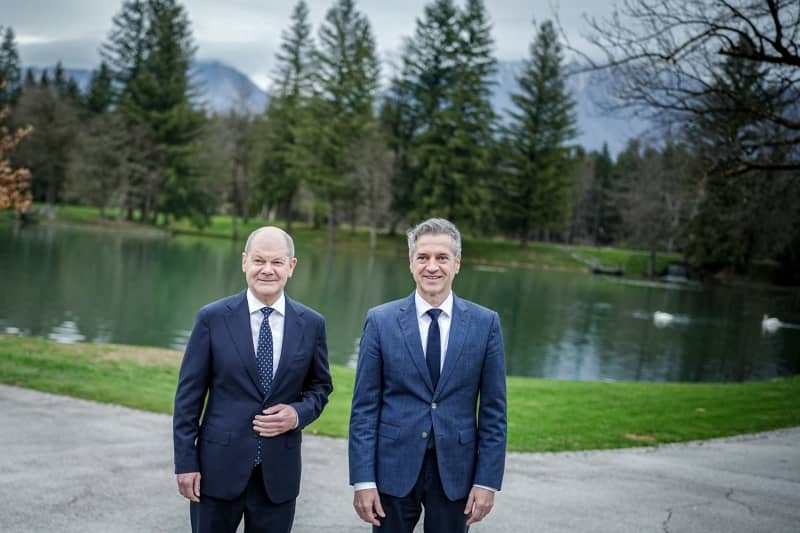Scholz defends planned checks at all German borders for Euro 2024

- Oops!Something went wrong.Please try again later.
- Oops!Something went wrong.Please try again later.
German Chancellor Olaf Scholz has defended planned border controls during the European Football Championship, after the country's interior minister announced the measures earlier on Tuesday.
"This is a proven set of instruments that we have in Europe and that we use here and that serves security. I think everyone understands that," Scholz said on Tuesday during a visit to Slovenia. "We will do everything necessary to keep citizens safe."
Even before the terrorist attack on a concert hall near Moscow last week, assessing the security situation had been a "top priority" and many security precautions had been taken, Scholz stressed. The border controls are nothing unusual, he asserted.
German Interior Minister Nancy Faeser announced temporary checks at all German borders during the European Football Championship this summer on Tuesday morning.
"We will carry out temporary border controls at all German borders during the tournament in order to prevent possible perpetrators of violence from entering the country," Faeser told told the Rheinische Post, a German regional newspaper, in comments published on Tuesday.
This was necessary in order to provide the best possible protection for the major international event.
The focus is on protection against extremists, hooligans and other perpetrators of violence, as well as network security against cyber attacks. "We are particularly focused on these current threats," Faeser said.
Euro 2024 kicks off in Germany on June 14, with the final set for July 14.
In 2006, Germany temporarily suspended a European agreement abolishing internal border controls before and during its hosting of the World Cup.
Faeser had already hinted in recent days that she was considering introducing border controls during the European tournament.
In mid-February, the interior minister extended the controls at the land borders with Poland, the Czech Republic and Switzerland until mid-June in an attempt to stop smugglers and irregular migration.
All four countries are members of the Schengen free-movement area, which means that there are normally no regular border controls and only very limited random spot checks.
But Germany has repeatedly invoked temporary powers to tighten border controls in recent years to control the flow of migrants and asylum seekers. Similar border checks were reimposed along Germany's border with Austria in 2015 and remain in effect.
The interior minister of the state of North Rhine-Westphalia, Herbert Reul, has announced tighter security measures for the championships.
An international police centre will be set up in Neuss near Düsseldorf, Reul said on Deutschlandfunk radio on Tuesday. All information and situation reports would be centralized from there.
North Rhine-Westphalia is in very close contact with the continental football body UEFA, the minister said. "We need a clear picture of the situation, we need enough information. That is the most important thing. This is always underestimated," said Reul.
In the western German state alone, matches will be played in Dortmund, Gelsenkirchen, Düsseldorf and Cologne.
Saxony's Interior Minister Armin Schuster believes the police are well prepared for the Euros, even in view of the possible threat of terrorism.
"I don't want to spread alarm," he told broadcaster ARD on Tuesday. "I would rather say that we have been prepared for such scenarios for some time, including in terms of equipment."
Preparations have been under way for months, the minister said.
"We wouldn't have needed an attack in Moscow to be even more alarmed or anything like that," Schuster said, referring to the terrorist attack on Friday in the Russian capital in which 139 people died.



